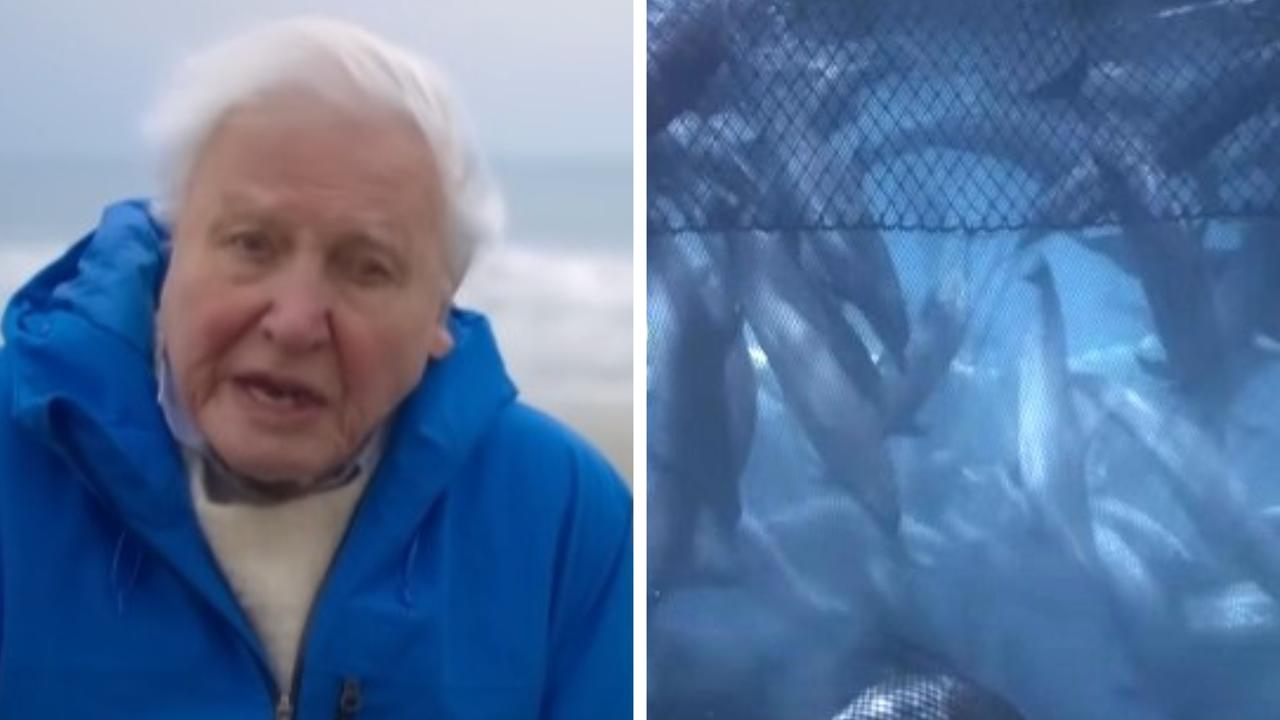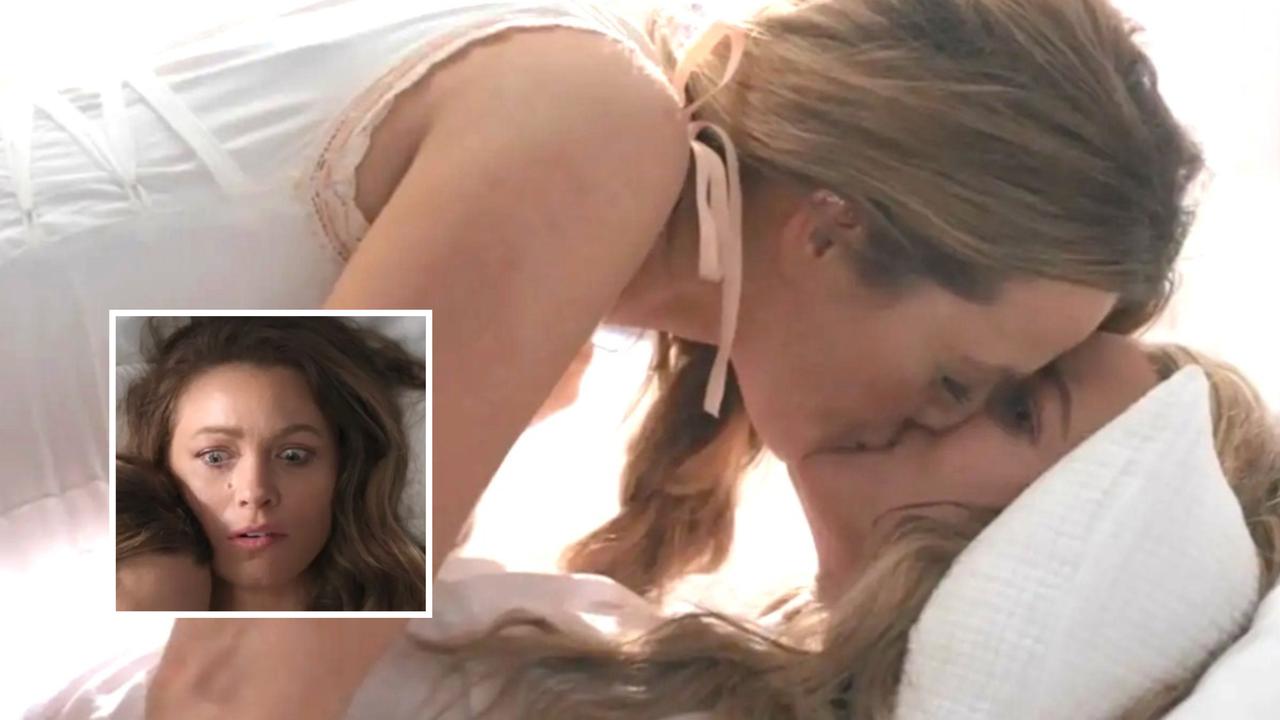The Color Purple star Fantasia Barrino on personal trauma, therapy and ‘amazing’ Oprah
American Idol winner Fantasia Barrino wowed audiences on Broadway in The Color Purple, but her traumatic past nearly ruined the movie version.
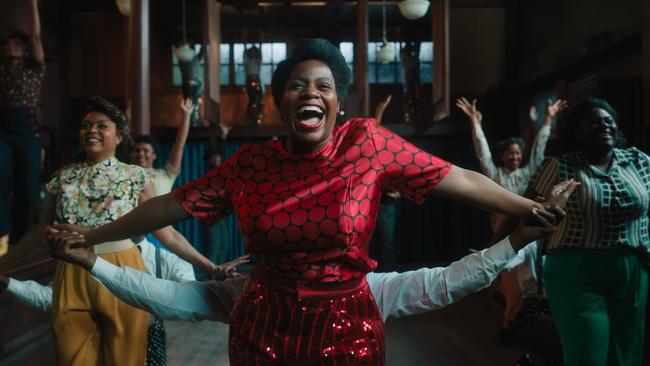
New Movies
Don't miss out on the headlines from New Movies. Followed categories will be added to My News.
Fantasia Barrino thought long and hard before she agreed to reprise her role of the downtrodden, abused, but ultimately triumphant Celie Johnson in the new big-screen musical version of The Color Purple.
After winning the third season of American Idol in 2004 aged just 19, followed by two commercially successful, Grammy nominated albums, in 2007 Barrino took on the lead character in the Broadway show based on the Alice Walker’s best-selling book, in the part made famous by Whoopi Goldberg in Steven Spielberg’s Oscar-nominated 1985 film version.
Although audiences flocked to see Barrino perform, playing the part of an African-American woman in the US Deep South in the early 1900s, who is sexually abused by her father – and forced to surrender her two children – and physically abused by her husband, proved to be an almost unbearable load.
A few years earlier she’d released her best-selling autobiography, Life Is Not a Fairytale, in which she detailed her own experiences with abuse, poverty and self-esteem issues and she found herself tapping into those experiences every night, and struggled to separate herself from the character she was playing.
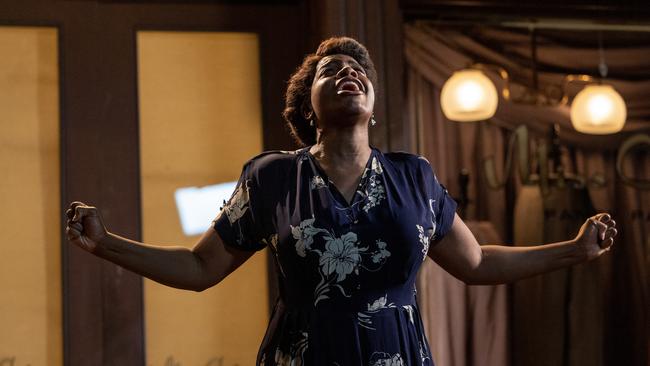
“At that time my life was a bit all over the place,” Barrino says. “I didn’t have the team that I needed and the people surrounding me for all the right reasons and so I felt like I was carrying my cross and Celie’s cross at the same time.
“The Color Purple Broadway show was the first Broadway show I had ever seen and then they asked me to be in it and so I felt like at that time I didn’t even know how to come out of character, so I took Celie home with me, I woke up with Celie and it became an overload. It was very heavy and very dark.”
Fast forward more than a decade – and with another five albums and a Grammy Award behind her and having staved off depression and bankruptcy – and Barrino was in a much better place than her younger self. Married, with four children (and a grandchild), a couple of dogs and a certified sommelier with her own wine brand, she felt much better equipped to deal with the physical and emotional demands of the role.
But she was still mindful of her mental health at the prospect of headlining a major studio release in her first film. Just before she was approached for the role, she had begun traumatic therapy, which she describes as “when they take you back to your childhood and we start to deal with things you’ve either suppressed or forgotten – things that hinder you from your future”.
Using her past experiences as her guide, she decided that she couldn’t do both things at once.
“I had to stop traumatic therapy,” she says. “If I was going to say yes, I knew that I had to allow Celie to be my therapist and I was afraid because I didn’t know what that feeling was going to feel like. Was it going to be like it was on Broadway or will it be different because I’m different?”
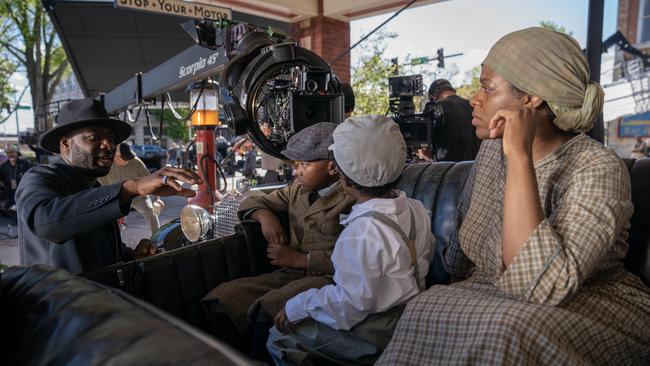
What ultimately changed her mind and got her to agree was director Blitz Bazawule’s decision to show more of Celie’s inner life and imagination, in dream like sequences and big song and dance numbers (Barrino had to learn to tap dance for the role). She thought being able to see more clearly how Celie processed her trauma would help audiences – including those closest to her – to focus more on the character’s resilience, hope, faith and indomitable spirit, rather than just being a victim.
“I thought heck yes, give her an imagination, so that all of these young girls and women and whoever this role is going to touch, can see that it does not matter what you are going through, you can fall, but baby, you can get back up.
“You can write your vision and you can make that thing plain, and that is why I was excited. And I wanted to play it because I wanted my girls and every other woman – and men too – to see that it does not matter what we go through as long as you keep faith, and you have something to hold on to.”
Barrino’s castmates – The Colour Purple was this month awarded the Best Cast Ensemble at the Astra Film and Creative Awards – rallied around too. Colman Domingo, who plays Celie’s deadbeat husband Mister, and Taraji P. Henson, who plays her friend and lover, glamourous singer Shug Avery, were always on hand to lighten the atmosphere and take Barrino’s mind off the bruises and berating of the difficult shoot.
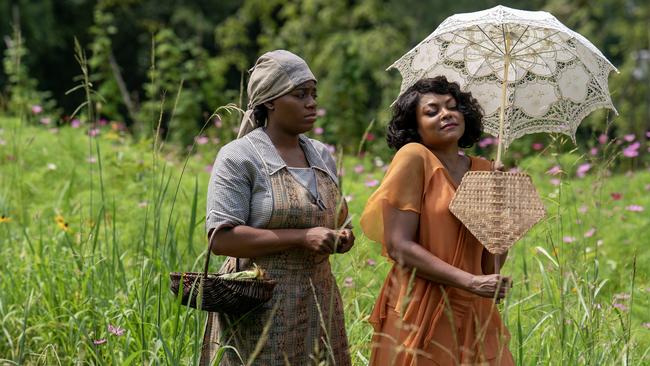
“Colman Domingo, I don’t know how he played Mister because he’s nothing like that,” Barrino says with a laugh. “He’s a sweetheart. But they would not let me sit in those moments, him and Taraji – because I spent most of my time with those two – they would not let me sit in it. We would go from a hard scene or a deep scene and we would end up in another room laughing, talking, singing.”
The 1985 film was also notable for the film debut of Oprah Winfrey, and the media magnate returned as a producer for this version, alongside Spielberg, music great Quincy Jones and Scott Sanders, who also produced the Broadway show.
“Oprah never went home, and I thought that was amazing,” says Barrino admiringly. “She stayed on set. We would be in the woods where there were mosquitoes and bugs and I’d look behind me and she’s fanning the mosquitoes just like we were. She was in the trenches with us, because the story means a lot to her as well.”
And while Barrino didn’t get to speak to Goldberg, who was nominated for the Best Actress Oscar in her breakout role and has a cameo in the musical, before production, the pair shared a special moment after an episode of chat show The View.
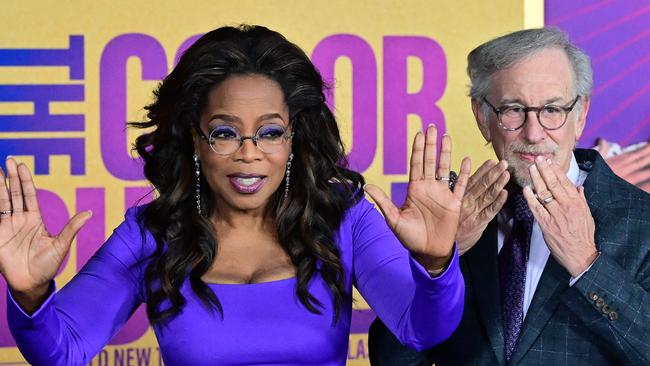
“She pulled me to the side, and I said ‘I wanted to talk to you, but it just felt like something was not allowing it to happen, but it didn’t feel bad’,” Barrino says. “And she said ‘I needed you to stay in your place – but if I was to pass the baton to anyone, it would have been you’. And I just started crying.”
Barrino’s bravery – to say nothing of her incredible vocal prowess – has already paid dividends, with individual acting nominations at the Golden Globes and Satellite Awards, and as part of ensemble nominations at the Screen Actors Guild Awards and the Critics’ Choice Movie Awards. And she’s basking in the moment, not just for her own sake but also “for people to be inspired and healed” by the film.
“I felt like Cinderella and like I was walking through a dream,” she says of her Golden Globes experience, despite losing to Emma Stone for Poor Things.
“To be on the carpet with so many amazing gifts that I watched growing up and have inspired me through movies and their work. I felt like the little Southern girl that was in a dream in my beautiful Dolce and Gabbana dress and I soaked up every moment. And I got to meet Robert De Niro, so that was everything.”
The Color Purple is in cinemas on January 25.
Originally published as The Color Purple star Fantasia Barrino on personal trauma, therapy and ‘amazing’ Oprah

